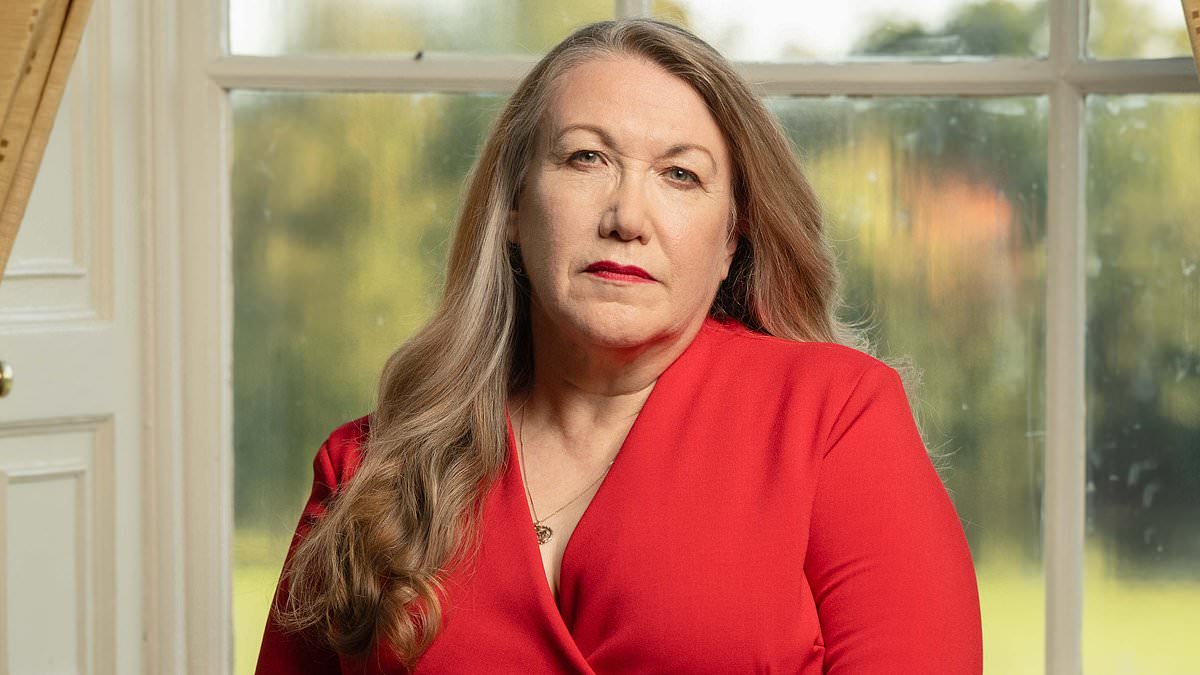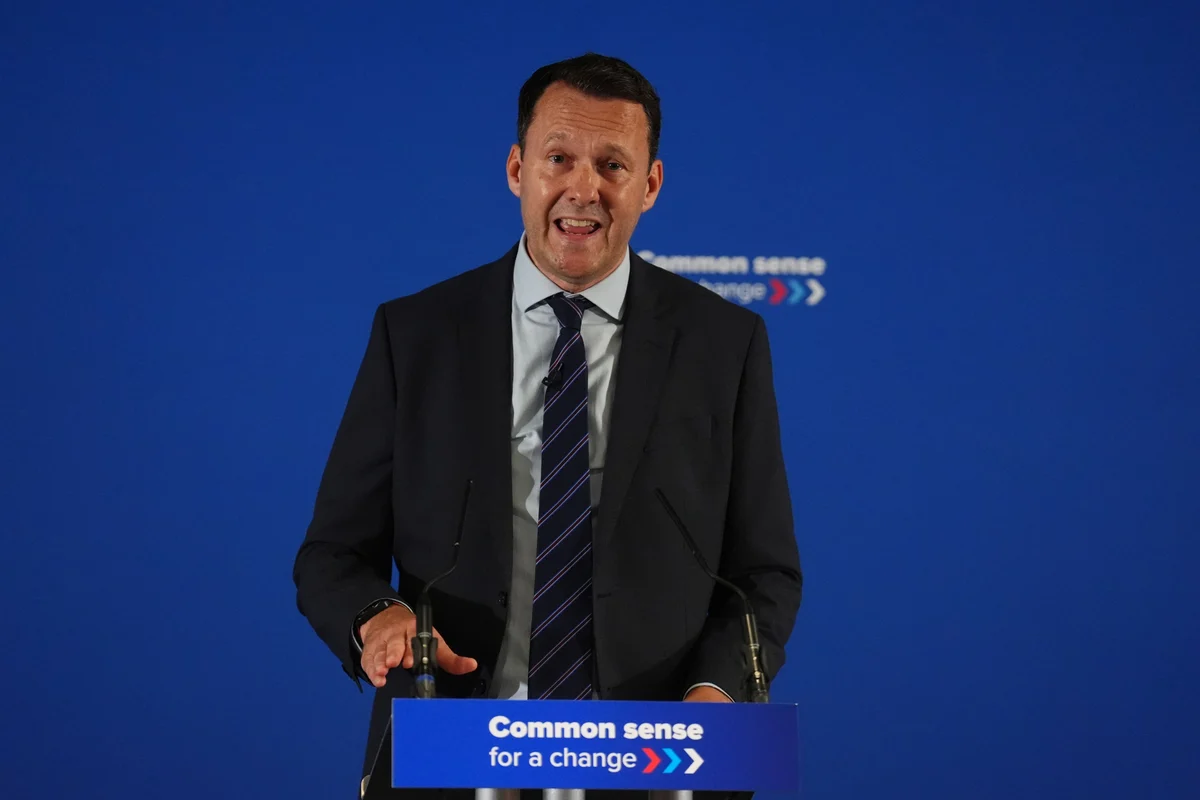I was cut off by my own daughter – and I still don’t know why: The loving parents ditched by their own children without an explanation… as our expert reveals the disturbing truth about the rise in family estrangement
By Editor,Kathryn Knight
Copyright dailymail

Debi Richens describes the moment her world fell apart for the second time as ‘sudden and brutal’.
A few days previously, she had enjoyed a convivial dinner with her daughter, Sasha, now 34, and her young granddaughter.
Yet within just a few weeks, for reasons she still does not fully understand, Sasha abruptly severed contact. ‘No conversation has ever been allowed to explain why. I was told that “you know what you have done”,’ Debi recalls.
That was ten years ago and despite Debi’s many desperate attempts to reach out, her daughter has refused to engage with her, leaving a profound emotional toll. ‘You lose yourself,’ the 61-year-old says. ‘Being a parent is such a huge part of your identity and to have that taken away is devastating.’
Debi is far from alone: as the Daily Mail revealed earlier this year in a piece on the growing number of adult children choosing to sever contact with their parents, with research by the charity Stand Alone suggesting that approximately one in five of the UK population has been impacted by the phenomenon.
Behind that stark statistic, meanwhile, are countless parents suffering in silence because of the ongoing stigma associated with family estrangement. ‘Explaining that you are not in contact with your children is incredibly difficult,’ says Debi, from Berkshire.
‘There is this sense that you must have done something profoundly wrong as a parent. I believe that despite how common it is. It’s one of society’s last taboos.’ Yet it is a taboo that can strike any family: the schism between Prince Harry and his father, and Brooklyn Beckham’s decision to isolate himself from his celebrity parents David and Victoria, have underlined how status, fame and fortune offer no protection against its sting.
Debi’s story reaches back two decades and is rooted in an unhappy marriage to Sasha’s father. She recalls years of supporting her husband through family tragedies, only to find herself blamed when she experienced a serious car accident in 2005. It was an event that brought her life into sharp focus. ‘My husband’s reaction was, “I suppose it was your fault, was it?” That was the final straw. I knew I couldn’t stay any longer,’ she recalls.
The decision came at a heavy cost: within 24 hours of announcing her intention to separate, Debi says friends and relatives on her husband’s side closed ranks. She was told her then 14-year-old daughter, to whom she had always been close, had chosen to stay with her father. ‘I never got the chance to talk to her to explain what had happened. I was not allowed to have a private conversation with her,’ she says.
‘I was simply told, “She’s chosen to stay with Dad”.’
What followed was a decade of what Debi calls ‘all-out war’ between her, her ex and her daughter during which any fragile attempts at reconciliation were swiftly derailed.
‘I did everything I could to reach out to Sasha but on the few occasions I saw her, I spent my whole time terrified of saying the wrong thing,’ she remembers.
‘She lived a stone’s throw away and had to walk past my house to go to school but sometimes months would go by without me setting eyes on her. If I tried to phone her she wouldn’t answer and, on the rare occasion she did reply to my text messages, it was terse.’
The consequences were profound. ‘For a long time I couldn’t even walk down a supermarket aisle if there was a young mum with a baby,’ Debi recalls. ‘I’d turn away, sometimes abandon my shopping, because the pain was overwhelming.’
When Sasha reached 18, contact increased but the relationship remained strained. ‘It was always on her terms and highly prescribed,’ says Debi. Then, at the age of 24, Sasha fell pregnant – and Debi dared to hope that relations were thawing. It was not to be: when Sasha gave birth to a girl, Debi was the last to know, learning the news from a cursory call from her daughter’s boyfriend. ‘I saw pictures on Facebook showing my ex and his new wife cuddling her by my daughter’s hospital bed,’ she says. ‘It was devastating.’
Debi met her granddaughter just five times in her first year and was never allowed to be on her own with her. ‘Sasha wouldn’t even allow me to change a nappy,’ she says.
Then, in July 2015, Sasha came to a birthday dinner with the baby and Debi dared to hope it signalled a new start to their relationship.
‘We had the most wonderful evening,’ she says. ‘She kept ringing on the way to apologise for being late. It felt normal and loving.’
Nothing, she says, occurred during that evening to prepare her for what happened next: just a couple of weeks later, Debi woke to find her daughter had posted accusations about her on social media. ‘I was accused of hijacking her forthcoming wedding, when I had been terrified of saying anything. The one time I did speak up, asking for my deaf and sight-challenged mother’s seat to be closer to the top table, I was attacked for telling her how to seat people.’
Two weeks later, she learned she had been disinvited from the wedding and since then contact has been virtually non-existent, with Sasha refusing to engage even when Debi broke the news of Sasha’s grandmother’s death in 2021. ‘It’s a form of bereavement, with all the grief of milestones never shared and dreams never realised, except it’s not recognised by society,’ she reflects.
It’s one of the reasons she decided to train as a coach and mentor to support estranged parents, as well as setting up an online support group. ‘Within 24 hours, there were seven people in that group. Within three weeks, we had 1,500,’ she says. ‘It gives some indication of the extent of people’s suffering.’
Psychologist Dr Joshua Coleman, who has written books on estrangement, says changing social mores and the rise in therapy mean more people are walking away from their families, with many from younger generations choosing to prioritise their own feelings over those of the wider community or their parents.
‘Every single letter that I get from an estranged child about their parents says: “I need to protect my mental health and I’m happier not being in contact”,’ he explains.
‘From the parents’ perspective, it can look very abrupt and there isn’t an obvious precipitant, while from the adult child’s perspective, it’s typically a build-up and a series of events that lead to a weakening of the fabric of the relationship until it just tears apart.’
At home in Cornwall, Sally Graham wonders if that is what happened with her daughter Imogen, who cut off contact three years ago following Sally’s decision to remarry. ‘When I look back at everything that has happened I wonder if she was waiting to find a reason to break off our relationship,’ she says.
For many years mother and daughter were close. When Sally and her first husband believed they could not have children, they decided to adopt and – on ‘the most wonderful day of my life’, says Sally – we were given five-week-old Imogen. ‘She was my parents’ first grandchild and it was joyous,’ she says. ‘She knew from a young age that she was adopted and she took it very well.’
Intelligent and ambitious, Imogen, now 38, won a scholarship to a private school and, while adolescence brought challenges, the relationship with Sally remained warm. ‘She was never very tolerant of other people’s weaknesses and she could be quite easily irritated but she was studious and loved school,’ says Sally. ‘I thought we were close and I really did feel close to her.’ On occasion, Imogen seemed to resent her two younger brothers, who came along naturally, much to Sally’s surprise. ‘They were quite a handful and I wonder if she thought they dominated my time,’ she says.
She acknowledges that, as her daughter grew older, their relationship became more complicated: Imogen chose not to go to university, instead moving to Yorkshire to be with her boyfriend. She married young, divorced, and later had a seven-year relationship that ended badly. ‘During that time she seemed to always be falling out with people,’ Sally says. ‘She pushed people away. I felt like I was walking on eggshells, trying to protect her.’ Then her daughter moved away for a fresh start. ‘She always seemed to be searching for something,’ Sally says.
It was in 2019 that Imogen had a terrible car accident. She was in her early 30s and it was Sally who dropped everything to care for her during her difficult recovery, only for that care to be repaid with hostility. ‘She was absolutely awful to me,’ she says. And when Sally broke the news that she wanted to end her marriage to Imogen’s father, her daughter ‘completely turned’ on her.
Over time the pair rekindled contact – until, in 2022, Sally told Imogen she had formed a relationship with a new partner, who had previously been a good friend.
‘I explained on the phone that my new partner and I had grown closer and she was, or seemed to be, absolutely fine,’ she recalls.
‘Two days later, I received the most horrendous abuse on WhatsApp – she said I was the worst mother imaginable and the reason she’d decided not to have children herself. I was devastated. When I then sent a birthday message via my son, she emailed to say if I tried to contact her again, she’d have me arrested.’ The emotional toll has been severe. ‘I’ve had to shut off a bit of my heart for self-protection,’ she says. ‘Christmases and birthdays are particularly hard. It’s like a death, but worse, because you can’t properly grieve. There’s no closure.’
It is cold comfort that estrangement is more common than people realise. ‘I’ve met three other women in the same situation in my small town,’ she says.
In Newcastle, meanwhile, David Wheeler is reeling at the way his children – a son aged 28 and a daughter, 25 – have turned against him. Now 57, he initially raised them alone following the death of his wife from cancer 20 years ago.
‘It was tough and there were times I felt overwhelmed but I tried to make sure they had stability, love and guidance,’ he says of becoming a single parent to an eight and five-year-old. ‘I always tried to be there.’
It was a decade after his wife passed that David, who runs his own business, met Clara, a lively, warm-hearted woman from a local tennis club. ‘We clicked immediately,’ he says. ‘We were friends for a long time before it became romantic, but when it did, I thought the children would be happy for me.’
Yet almost immediately, the reactions of his then teenage children were icy. ‘My daughter was the first to speak her mind,’ David recalls. ‘She said she felt betrayed, like I was replacing their mother, like I hadn’t thought about their feelings. The harder I tried, the more distant she became.’ His son was no different. ‘Everything was tinged with tension,’ David says.
‘Any mention of Clara and everything changed. Every occasion became a minefield.
‘I tried to remain patient, but it was heartbreaking.’
As the children got older, polite distance turned into silence – until his daughter stopped speaking to David entirely.
‘She blocked my calls and stopped responding to my messages. I sent letters, tried emails, small gestures, but nothing worked,’ he says. ‘It felt like being erased from her life. While he sees his son occasionally, their meetings are characterised by a chilly politeness. At times the experience has plunged David into despair. ‘I kept asking myself should I have waited longer? Should I have explained myself differently? Maybe. But I also knew I couldn’t live my life suspended, afraid of making them angry. I had to be honest about my happiness, even if it hurt them.’
His only recourse has been to focus on what he does have. ‘I love Clara and she’s been my anchor through this. I have my health, my marriage and friends who’ve become family, and I’ve had to accept that, sometimes, life doesn’t follow the path you expect. I can’t control my children’s choices, only how I respond.’
And as Joshua Coleman – who was estranged from his own adult daughter following his remarriage but is now happily reconciled – points out, not all estrangements are doomed to last forever.
‘A large study undertaken in the US found that around 80 per cent of mothers eventually reconcile with their children and roughly 70 per cent of fathers do so,’ he says.
Whatever the statistics say, Debi lives in hope. ‘The longing never goes away. You carry it every day. I live with continuous hope but in the meantime I’ve learned to live and to help others who are carrying the same unbearable weight,’ she says.
In Cornwall, Sally also dreams of the moment Imogen knocks on her door. ‘I’d welcome her with open arms,’ she says. ‘But I’ve also got to get on with my life.’
She hopes that by sharing her story, it will help others understand the appalling trauma of estrangement.
‘Parents shouldn’t have to suffer in silence, ashamed of something they never chose,’ she says.
‘We need to say out loud: estrangement is a form of grief and it deserves compassion.’
Some names have been changed.



